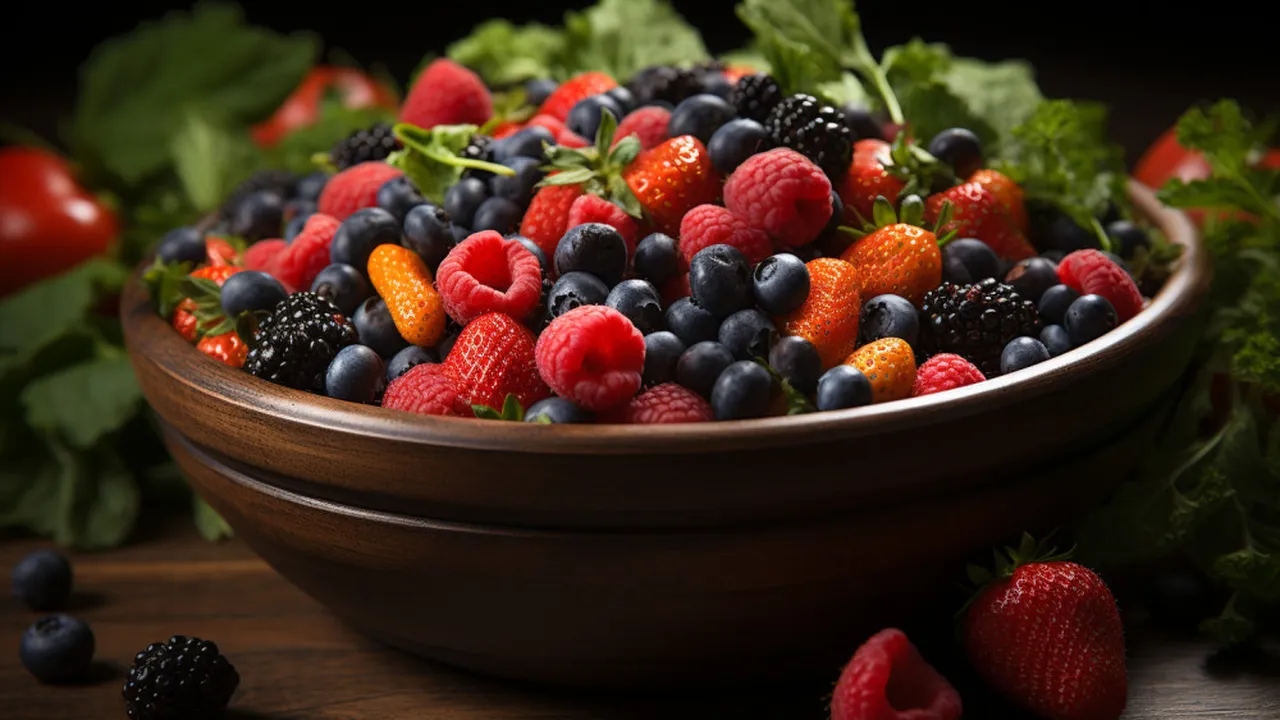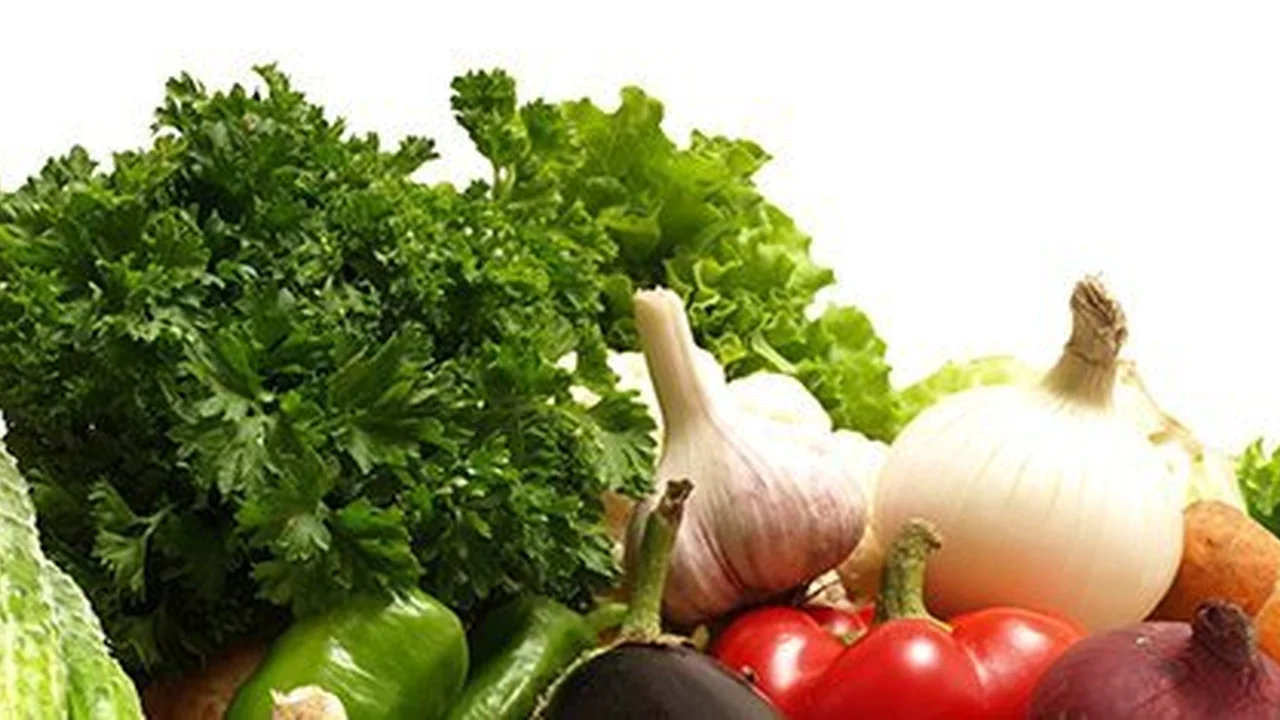Comparing Vegan Vegetarian and Omnivore Diets
Compare vegan, vegetarian, and omnivore diets. Explore the pros and cons of each eating pattern for health and ethics.

Comparing Vegan Vegetarian and Omnivore Diets
Hey there, health enthusiasts and food explorers! Ever found yourself scratching your head, wondering which diet is truly the 'best' for you? With so much information out there, it's easy to get lost in the sea of dietary choices. Today, we're diving deep into three of the most popular eating patterns: vegan, vegetarian, and omnivore. We'll break down their core principles, explore their health implications, discuss ethical considerations, and even touch upon their environmental impact. So, buckle up, because by the end of this, you'll have a clearer picture of what each diet entails and which one might align best with your lifestyle and values.
Understanding the Vegan Diet A Plant Based Lifestyle
Let's kick things off with the vegan diet. This isn't just about what you eat; it's often a lifestyle choice that extends beyond the plate. A vegan diet completely excludes all animal products. That means no meat (red meat, poultry, fish, seafood), no dairy (milk, cheese, yogurt, butter), no eggs, and often no honey. Beyond food, many vegans also avoid animal-derived products in other areas of their lives, such as leather, wool, silk, and products tested on animals.
Health Benefits of a Vegan Diet Weight Management and Chronic Disease Prevention
When it comes to health, a well-planned vegan diet can be incredibly beneficial. Studies consistently show that vegans tend to have a lower body mass index (BMI) and a reduced risk of chronic diseases. Think about it: a diet rich in fruits, vegetables, whole grains, legumes, nuts, and seeds is naturally high in fiber, vitamins, and minerals, and typically lower in saturated fat and cholesterol. This can translate to a lower risk of heart disease, type 2 diabetes, and certain cancers. For example, the high fiber content helps with satiety, which can aid in weight management, and also supports a healthy gut microbiome. The abundance of antioxidants from plant foods helps combat oxidative stress, a key factor in aging and disease development.
Potential Nutritional Challenges for Vegans Essential Nutrients and Supplementation
However, going vegan isn't without its challenges. Because animal products are rich sources of certain nutrients, vegans need to be mindful of their intake of vitamin B12, vitamin D, omega-3 fatty acids (EPA and DHA), iron, calcium, zinc, and iodine. Vitamin B12, for instance, is almost exclusively found in animal products, so supplementation is crucial for vegans. Many plant-based milks and cereals are fortified with B12, but relying solely on these might not be enough. For omega-3s, while flaxseeds, chia seeds, and walnuts provide ALA (alpha-linolenic acid), converting it to the more active EPA and DHA can be inefficient. Algae-based supplements are a great option here. Iron from plant sources (non-heme iron) is less readily absorbed than heme iron from meat, so pairing iron-rich plant foods (like lentils, spinach, and fortified cereals) with vitamin C sources (like citrus fruits or bell peppers) can enhance absorption. Calcium can be found in fortified plant milks, tofu, and leafy greens, but ensuring adequate intake requires conscious effort. Zinc and iodine also need attention, with legumes, nuts, and fortified foods being good sources.
Exploring the Vegetarian Diet A Flexible Plant Focused Approach
Next up, we have the vegetarian diet. This is a broader category with a few variations, but the common thread is the exclusion of meat, poultry, and fish. Unlike vegans, vegetarians typically include some animal products in their diet.
Types of Vegetarian Diets Lacto Ovo Pescatarian and Flexitarian
- Lacto-ovo vegetarian: This is the most common type. People following this diet avoid meat, poultry, and fish but include dairy products (lacto) and eggs (ovo).
- Lacto-vegetarian: Excludes meat, poultry, fish, and eggs, but includes dairy products.
- Ovo-vegetarian: Excludes meat, poultry, fish, and dairy products, but includes eggs.
- Pescatarian: While not strictly vegetarian, it's often grouped here. Pescatarians avoid all meat and poultry but include fish and seafood, along with dairy and eggs.
- Flexitarian: This is a semi-vegetarian approach. Flexitarians primarily eat a plant-based diet but occasionally include meat, poultry, or fish. It's all about flexibility and reducing meat consumption rather than strict elimination.
Health Advantages of Vegetarianism Reduced Disease Risk and Improved Digestion
Similar to veganism, vegetarian diets are generally associated with numerous health benefits. The emphasis on plant foods means a higher intake of fiber, vitamins, and minerals, and often lower intake of saturated fat and cholesterol compared to typical omnivorous diets. This can lead to a reduced risk of heart disease, type 2 diabetes, and certain cancers. The inclusion of dairy and eggs in lacto-ovo vegetarian diets can make it easier to meet nutrient requirements for calcium, vitamin D, and vitamin B12 compared to a vegan diet. The fiber content also supports healthy digestion and can contribute to better weight management.
Nutritional Considerations for Vegetarians Iron and Omega 3s
While vegetarians have fewer nutritional hurdles than vegans, they still need to be mindful. Iron intake can still be a concern, especially for menstruating women, as non-heme iron from plants is less bioavailable. Again, pairing iron-rich plant foods with vitamin C is key. Omega-3 fatty acids can also be a consideration, particularly for lacto-ovo vegetarians who don't consume fish. While eggs contain some omega-3s, and dairy can too depending on the animal's diet, it might not be enough. Flaxseeds, chia seeds, and walnuts are good plant-based sources of ALA, and algae-based supplements can provide EPA and DHA.
The Omnivore Diet A Traditional and Diverse Approach
Finally, let's talk about the omnivore diet. This is the most common eating pattern globally, characterized by the consumption of both plant and animal products. It's the diet most people grew up with and offers the widest range of food choices.
Benefits of an Omnivore Diet Nutrient Density and Dietary Flexibility
The primary advantage of an omnivore diet is its inherent flexibility and the ease of obtaining a wide array of nutrients. Meat, fish, eggs, and dairy are excellent sources of complete proteins, vitamin B12, iron (heme iron is highly bioavailable), zinc, and omega-3 fatty acids (especially from fatty fish). This makes it relatively straightforward to meet all essential nutrient requirements without extensive planning or supplementation. The diversity of food choices also means a broader range of flavors and textures, which can make meal planning and social eating simpler for many.
Potential Health Risks of an Omnivore Diet Processed Foods and Saturated Fats
However, the omnivore diet isn't without its potential downsides. The health outcomes largely depend on the quality and quantity of the foods consumed. A diet high in processed meats, red meat, and foods rich in saturated and trans fats can increase the risk of heart disease, type 2 diabetes, and certain cancers. For example, excessive consumption of processed meats has been linked to an increased risk of colorectal cancer. The typical Western omnivore diet, often characterized by low fiber intake and high consumption of refined grains and added sugars, can also contribute to obesity and other metabolic disorders. It's not just about what you eat, but how much and how often.
Ethical and Environmental Considerations Diet Choices and Impact
Beyond personal health, our dietary choices have significant ethical and environmental implications. This is often a major driving force for people adopting vegan or vegetarian diets.
Animal Welfare Concerns The Ethical Stance of Veganism and Vegetarianism
For many vegans and vegetarians, animal welfare is a primary concern. They object to the industrial farming practices that often involve confining animals in small spaces, using antibiotics to prevent disease in crowded conditions, and the general treatment of animals as commodities. Vegans take this a step further by opposing the exploitation of animals in any form, including for dairy and eggs, arguing that these industries also involve significant animal suffering and eventual slaughter. Vegetarians, while still avoiding meat, may feel that dairy and egg production, especially from ethical or free-range sources, is acceptable.
Environmental Impact of Dietary Choices Greenhouse Gas Emissions and Resource Use
The environmental footprint of our food system is another critical factor. Animal agriculture, particularly the production of red meat, is a significant contributor to greenhouse gas emissions, deforestation (for grazing land and feed crops), water pollution, and biodiversity loss. Producing a kilogram of beef, for example, requires significantly more land, water, and emits more greenhouse gases than producing a kilogram of lentils or vegetables. Plant-based diets generally have a much lower environmental impact. A study published in Nature Food in 2021 found that meat production is responsible for nearly 60% of all greenhouse gases from food. Shifting towards more plant-based eating, even if not fully vegan or vegetarian, can significantly reduce an individual's carbon footprint. The omnivore diet, especially one heavy in red meat and dairy, tends to have the highest environmental impact, while well-planned vegan diets have the lowest.
Comparing the Diets A Side by Side Look
Let's put it all together in a quick comparison to highlight the key differences and similarities.
Nutrient Profile and Dietary Completeness
- Vegan: Requires careful planning and supplementation for certain nutrients (B12, D, omega-3s, iron, calcium, zinc, iodine). High in fiber, antioxidants, and phytonutrients.
- Vegetarian: Easier to meet nutrient needs than vegan due to inclusion of dairy and/or eggs. Still needs attention to iron and omega-3s if not consuming fish. High in fiber, antioxidants.
- Omnivore: Easiest to obtain all essential nutrients due to diverse food sources. However, quality of food choices is paramount to avoid excessive saturated fat and processed ingredients.
Health Outcomes and Disease Prevention
- Vegan: Generally associated with lower BMI, reduced risk of heart disease, type 2 diabetes, and certain cancers.
- Vegetarian: Similar health benefits to vegan, often with lower BMI and reduced risk of chronic diseases compared to typical omnivore diets.
- Omnivore: Health outcomes vary widely based on food choices. A balanced omnivore diet rich in whole foods, fruits, vegetables, and lean proteins can be very healthy. A diet high in processed foods and red meat can increase disease risk.
Ethical and Environmental Footprint
- Vegan: Lowest environmental impact and strongest ethical stance against animal exploitation.
- Vegetarian: Lower environmental impact than omnivore, but still contributes to dairy and egg industries which have their own ethical and environmental considerations.
- Omnivore: Highest environmental impact, particularly with high consumption of red meat and dairy. Ethical concerns depend on individual sourcing and awareness of animal welfare.
Practical Considerations and Product Recommendations for Each Diet
Choosing a diet isn't just about theory; it's about practical application. Let's look at some real-world aspects and product recommendations that can make each diet easier and more enjoyable.
Navigating the Vegan Lifestyle Essential Products and Meal Planning
Going vegan requires a bit of a learning curve, especially when it comes to finding suitable alternatives and ensuring nutritional completeness. But don't worry, the market for vegan products has exploded!
Vegan Protein Sources and Supplements
- Plant-Based Protein Powders: For those looking to boost protein intake, especially after workouts.
- Garden of Life Sport Organic Plant-Based Protein Powder: This one is a popular choice. It's a blend of organic pea, sprouted brown rice, and cranberry proteins, offering 30g of protein per serving. It also includes probiotics for digestion. Price: Around $35-45 for a 1.5-2lb tub. Usage: Great for post-workout shakes or adding to smoothies for a protein boost.
- Orgain Organic Protein Powder: Another excellent option, often a blend of pea, brown rice, and chia seed proteins. Offers around 21g of protein per serving. Price: Around $25-35 for a 2lb tub. Usage: Versatile for smoothies, baking, or mixing with water/plant milk.
- Vegan B12 Supplements: Absolutely essential for all vegans.
- Deva Vegan B12 Sublingual Tablets: These are highly recommended because they are sublingual (dissolve under the tongue), which can improve absorption. They provide 1000mcg, which is a good dose for daily needs. Price: Around $10-15 for 90 tablets. Usage: Take one daily.
- Thorne Research Methylcobalamin B12: A high-quality option, often preferred for its methylated form which is readily utilized by the body. Price: Around $20-30 for 60 capsules. Usage: Consult with a healthcare professional for appropriate dosage.
- Algae-Based Omega-3 Supplements: To ensure adequate EPA and DHA.
- Nordic Naturals Algae Omega: A reputable brand known for purity and potency. Provides both EPA and DHA from marine algae. Price: Around $30-40 for 60 soft gels. Usage: Take 2 soft gels daily with food.
- Freshfield Vegan Omega 3 DHA EPA: Another good option, often in a smaller, easier-to-swallow capsule. Price: Around $20-30 for 60 capsules. Usage: Follow label instructions, typically 1-2 capsules daily.
Vegan Dairy and Meat Alternatives
- Plant Milks: Soy, almond, oat, cashew, rice, and coconut milks are widely available. Look for fortified versions for calcium and vitamin D.
- Oatly Oat Milk (Original/Full Fat): Creamy, great for coffee and cooking. Price: Around $4-5 per half-gallon. Usage: Coffee, cereal, smoothies, baking.
- Silk Unsweetened Almond Milk: A lighter option, good for general use. Price: Around $3-4 per half-gallon. Usage: Smoothies, cereal, drinking.
- Vegan Cheeses: Brands like Miyoko's Kitchen, Violife, and Daiya offer a range of cheeses that melt and taste surprisingly good.
- Miyoko's Kitchen Cultured Vegan Butter: Tastes incredibly close to dairy butter, great for cooking and spreading. Price: Around $6-8 per 8oz block. Usage: Baking, toast, sautéing.
- Violife Cheddar Shreds: Melts well, good for pizzas, tacos, or grilled cheese. Price: Around $5-6 per 8oz bag. Usage: Any recipe calling for shredded cheese.
- Meat Alternatives: Tofu, tempeh, seitan, and a growing number of plant-based burgers, sausages, and chicken substitutes (e.g., Beyond Meat, Impossible Foods, Gardein).
- Beyond Burger Patties: Known for their realistic texture and flavor. Price: Around $6-8 for 2 patties. Usage: Grilling, pan-frying, making burgers.
- Lightlife Smart Dogs: A popular vegan hot dog alternative. Price: Around $4-5 for a pack of 8. Usage: Hot dogs, sliced in stir-fries.
Making Vegetarianism Easy Diverse Options and Nutrient Rich Choices
Vegetarianism is often seen as an easier transition from an omnivore diet due to the inclusion of dairy and eggs. The market is also flooded with vegetarian-friendly products.
Vegetarian Protein Sources and Dairy Alternatives
- Eggs: A complete protein source, versatile for breakfast, lunch, or dinner.
- Vital Farms Pasture-Raised Eggs: Known for ethical sourcing and higher omega-3 content. Price: Around $6-8 per dozen. Usage: Scrambled, fried, baked, in frittatas.
- Dairy Products: Milk, yogurt, cheese, and butter provide calcium, vitamin D, and protein.
- Fage Total 0% Milkfat Plain Greek Yogurt: High in protein, great for snacks or breakfast. Price: Around $5-6 for a 35oz tub. Usage: With fruit, granola, in smoothies, as a sour cream substitute.
- Kerrygold Pure Irish Butter: A popular choice for its rich flavor, often from grass-fed cows. Price: Around $4-6 per 8oz stick. Usage: Spreading, cooking, baking.
- Vegetarian Meat Alternatives: Many brands offer vegetarian versions of burgers, sausages, and deli slices that contain dairy or eggs.
- MorningStar Farms Veggie Burgers: A classic vegetarian option, often made with soy or vegetables. Price: Around $4-5 for 4 patties. Usage: Burgers, crumbled in pasta sauces.
Iron and Omega-3 Rich Vegetarian Foods
- Lentils and Beans: Excellent sources of iron and fiber.
- Spinach and Kale: Iron-rich leafy greens.
- Fortified Cereals: Many breakfast cereals are fortified with iron and B vitamins.
- Flaxseeds and Chia Seeds: Good sources of ALA omega-3s.
Optimizing the Omnivore Diet Balanced Choices and Whole Foods
For omnivores, the key is balance and prioritizing whole, unprocessed foods. It's not about eliminating food groups, but about making smart choices within them.
Lean Protein Sources and Healthy Fats
- Lean Meats: Chicken breast, turkey, lean cuts of beef (e.g., sirloin, tenderloin).
- Perdue Farms Organic Boneless Skinless Chicken Breasts: High-quality, lean protein. Price: Varies, typically $8-12 per pound. Usage: Grilling, baking, stir-fries.
- Fatty Fish: Salmon, mackerel, sardines, and trout are rich in EPA and DHA omega-3s.
- Wild Alaskan Sockeye Salmon Fillets: Excellent source of omega-3s and lean protein. Price: Around $10-15 per pound. Usage: Baking, grilling, pan-searing.
- Bumble Bee Wild Caught Sardines in Olive Oil: A convenient and affordable source of omega-3s. Price: Around $2-3 per can. Usage: On toast, in salads, as a snack.
- Eggs: A versatile and nutrient-dense option.
- Dairy: Milk, yogurt, and cheese. Opt for lower-fat or unsweetened versions where possible.
Whole Grains and Produce
- Whole Grains: Brown rice, quinoa, oats, whole wheat bread.
- Abundant Fruits and Vegetables: Aim for a wide variety of colors to ensure a broad spectrum of vitamins, minerals, and antioxidants.
The Best Diet for You Personalizing Your Plate
So, after all this, which diet is the 'best'? The honest answer is: the one that works best for you. There's no one-size-fits-all solution. Each diet has its unique set of advantages and considerations. The most important thing is to ensure your chosen diet is well-balanced, provides all necessary nutrients, and aligns with your personal values, health goals, and lifestyle.
Factors to Consider When Choosing a Diet Health Goals and Lifestyle
- Health Goals: Are you looking to lose weight, manage a chronic condition, or simply improve overall well-being?
- Ethical Beliefs: How do you feel about animal welfare and the use of animal products?
- Environmental Impact: How important is it for you to reduce your carbon footprint through your food choices?
- Nutritional Needs: Do you have any specific dietary restrictions or requirements?
- Lifestyle and Convenience: How much time and effort are you willing to put into meal planning, cooking, and sourcing specific foods?
- Social Aspects: How will your diet choice impact social gatherings and dining out?
Seeking Professional Guidance Registered Dietitians and Nutritionists
No matter which path you choose, consulting with a registered dietitian or nutritionist can be incredibly beneficial. They can help you create a personalized meal plan, address any potential nutrient deficiencies, and ensure your diet is sustainable and healthy in the long run. They can also provide guidance on appropriate supplementation and help you navigate the complexities of food labels and ingredient lists.
Ultimately, whether you're a dedicated vegan, a compassionate vegetarian, or a balanced omnivore, the goal is to nourish your body, respect your values, and contribute to a healthier planet. It's a journey, not a destination, and every step towards more conscious and wholesome eating is a step in the right direction. Happy eating!
:max_bytes(150000):strip_icc()/277019-baked-pork-chops-with-cream-of-mushroom-soup-DDMFS-beauty-4x3-BG-7505-5762b731cf30447d9cbbbbbf387beafa.jpg)






